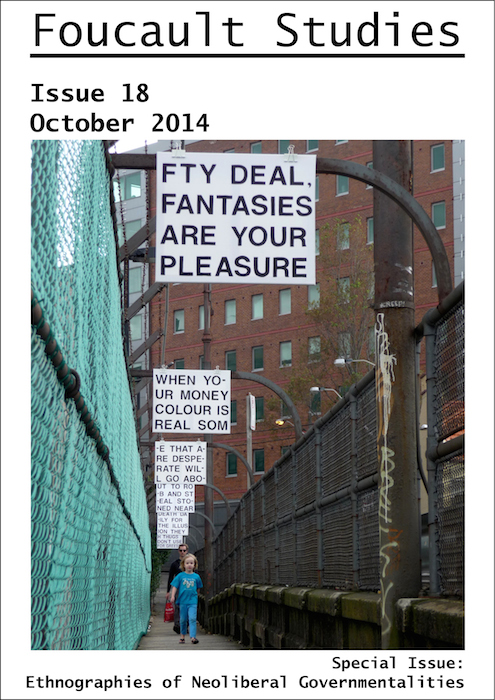Fixing Non-market Subjects: Governing Land and Population in the Global South
DOI:
https://doi.org/10.22439/fs.v0i18.4650Keywords:
governmentality, colonialism, liberal, neoliberal, assemblage, ethnographyAbstract
Expert knowledge about society and human nature is essential to governing human conduct. It figures in the formulation of the liberal and neoliberal rationalities of government that Foucault analyzed in his later work. It also figures in particular assemblages in which a governmental rationality is brought to bear on the definition of problems and the formulation of solutions. This article explores the use of expert knowledge in governmental assemblages directed towards optimizing relations between people and land in the global south. Since colonial times liberal versions of these assemblages have highlighted cultural difference, and attempted to fix particular populations into non-market niches. Elements from liberal assemblages have been grafted into neoliberal ones, producing the curious figure of homo economicus minus the market, the collectivized and arborealized subject of contemporary conservation initiatives.Downloads
Published
2014-10-17
How to Cite
Li, T. M. (2014). Fixing Non-market Subjects: Governing Land and Population in the Global South. Foucault Studies, (18), 34–48. https://doi.org/10.22439/fs.v0i18.4650
Issue
Section
Special Issue on Ethnographies of Neoliberal Governmentalities
License
Authors retain copyright to their work, but assign the right of the first publication to Foucault Studies. The work is subject to a CC BY-NC-ND 4.0 license, but despite these restrictions, authors can take for granted that Foucault Studies will permit articles published in Foucault Studies to be translated or reprinted in another format such as a book providing a full reference is made to Foucault Studies as the original place of publication.



